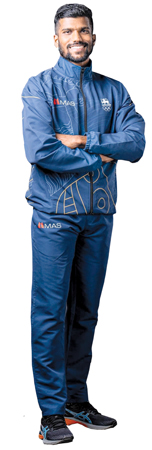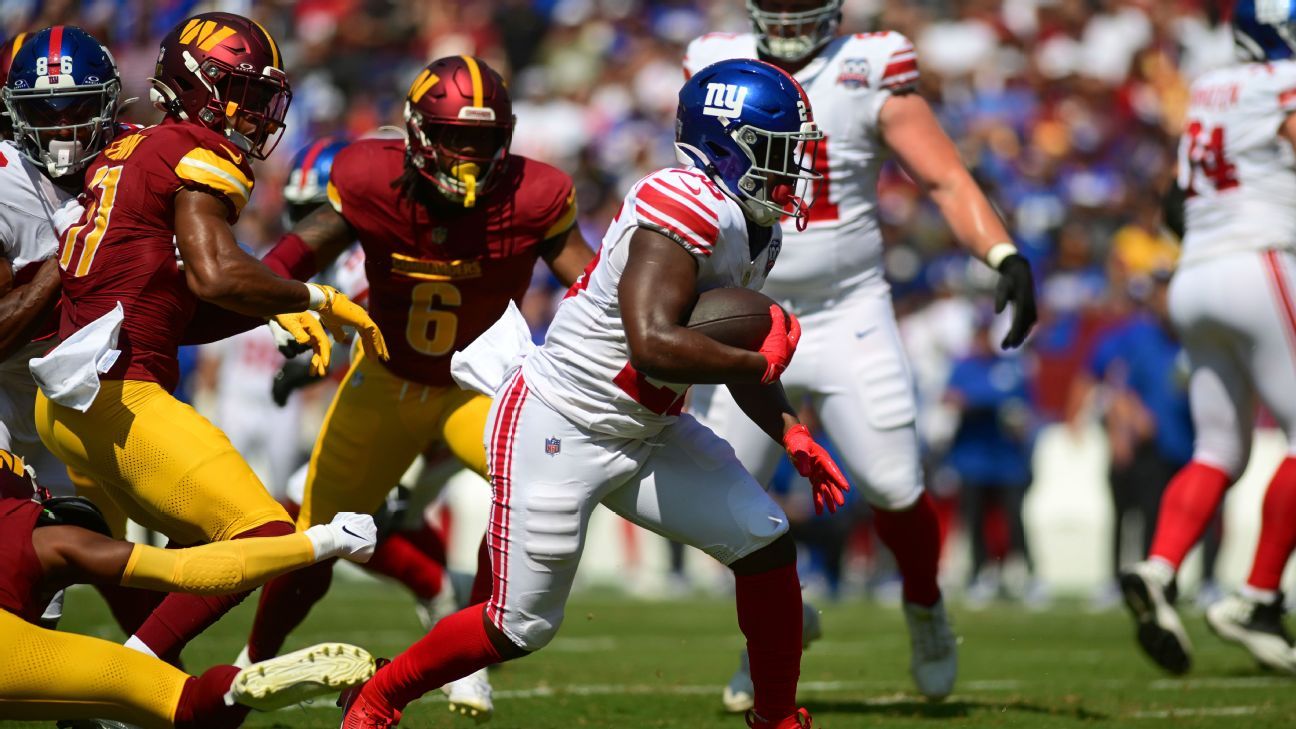The hope of achieving a medal at the Olympics is a dream held by many, but only a few athletes from around the world can proudly represent their countries at the Olympic Games, every four years. Among them, only a handful of Sri Lankans have brought pride to Sri Lanka. Notably, there was Duncan White, who won a silver medal in the men’s 400m hurdles at the 1948 London Olympics, and Susanthika Jayasinghe, who won a bronze medal in the women’s 200m sprint at the 2000 Sydney Olympics (the gold medal from that race was stripped from Marion Jones due to her use of banned substances.
Apart from them, the only athlete to reach the semi-finals in any Olympic event until now is the athlete everyone in the country has been talking about in recent days, Aruna Darshana. His Olympic journey ended in the semi-finals after finishing fifth in the men’s 400m race. He completed the race in 44.

75 seconds, setting a personal best. However, due to a violation of the lane rule during the race, his time and position were erased from the official results. Nonetheless, Aruna Darshana has etched his name in the history of Sri Lankan sports as the only athlete to have reached the semi-finals in the Olympic Games after Duncan White and Susanthika Jayasinghe.
Coming from a village called Serunuwara Dehiwatta, which was once a border village during the terrorist war, to becoming the first Sri Lankan to reach the Olympic semi-finals after 24 years in Paris is a remarkable journey that spanned 25 years. Aruna Darshana was born into a family with two older brothers, but he was not the only one; he had another younger brother as well. He is the youngest among the siblings.
Aruna was born just 15 minutes after his older brother. “My brother has survived death three times,” his younger brother Bhawantha said, sharing a shocking tale that no one else knew about until then, just before the semi-final race. “There was a house belonging to a relative behind our house.
One day while my brother was playing there, he fell into a well that was about ten feet deep. When I noticed, the people in that house ran and rescued him from the well. At that time, we were in the same grade at the Dehiwatta school.
A few years later, a relative’s son built a house next to the stream. They had constructed it with big stones that were about twenty feet deep. I remember this happening during some rainy season in November or December.
Because of that, the water in the well was filled to the brim. My brother fell into that water. The first time he came up and then sank again.
Later, the relative’s son jumped in and saved him. That was the second time my brother survived death. The next time, we were going to school one day and there was a fallen electric wire on the ground.
Back then, during the days when they used to wire houses with chickens, my brother tried to pull it away despite my warning. It was a wire on the ground and another wire above it. When he was holding one wire to remove it, he accidentally grabbed the other wire.
He got electrocuted and fell on the ground. His body was twitching, and he was mumbling. He was electrocuted for about two or three minutes.
I was terrified. At that moment, two people passing by quickly found a stick and used it to free him from the wire, and they took him to the hospital. He was treated for about a month.
Honestly, he should have died then. That was the third time he nearly died. There is still a scar on his left arm from that electrocution.
His palm was also affected. After surviving such three fatal incidents, my brother has come this far and reached Paris. I was there during all three instances,” said Bhawantha, sharing this harrowing tale.
Aruna and Pasindu, the twin brothers, with their mother Not only did Aruna Darshana survive three life-threatening incidents, but his twin brother and other family members also lived under constant fear due to the ongoing conflict with LTTE terrorists at the time. “We were both well-built. After coming home from school in the village, we’d eat lunch and then run to the canal.
We’d only come back home around five or six in the evening. There was a deep spot in the canal where the water flowed strongly, and a big tree nearby. We would climb the tree, hang a tyre swing, and jump into the water.
When we came back in the evening, either our eyes would be red, or our bodies would be covered in bruises. If our eyes were red, we wouldn’t even go home because we’d get beaten by our father. I got beaten more than my brother.
He’d wait and come home after I got beaten.” Pasindu Bhawantha reminisced with a smile. “My brother wasn’t very talkative.
He was a quiet character who kept to himself. In those days, you couldn’t even shout at him. Since we were twins, we did everything together, but even though we were twins, we didn’t look alike.
Sometimes the teachers at school would get us confused. When that happened, they would say, ‘Isn’t this the one who always gets into fights?’ because back then, I was the more aggressive one,” Pasindu said with a laugh. Both Aruna and Pasindu, who first attended Dehiwatta School, had a natural talent for sports.
Pasindu excelled in javelin and discus throwing. “In the village school, we both kept winning competitions at the district level. After seeing Aruna compete, our teacher, Harsha Sir, and coach Dilani Miss suggested to our mother that he should go to Akuramboda Sports School in Matale.
Miss Keshali from the town school also helped a lot. She’s the one who sent him to that school. A year after Aruna went, I also went to Akuramboda School,” Pasindu said.
He was referring to Weera Keppetipola National School in Akuramboda, Matale, which has boarding facilities. Both brothers lived in the school’s hostel, and it was during their time at Akuramboda that their athletic abilities blossomed. “From the beginning, Asanka Sir (Aruna’s current coach, Asanka Rajakaruna) was Aruna’s coach.
He was the school’s sports and physical education teacher. His wife also taught math at the school. I was into javelin and discus throwing.
My coach was Sugath Karunaratne Sir, who was also in charge of the hostel. We didn’t have enough to eat or drink in the hostel. There were only four boys in our sports class.
” Pasindu said. “Aruna joined the army a year before taking his A-level exams. I did my A-levels in the arts stream.
After joining the army, Asanka Sir took him to Kandy, where he stayed at Sir’s house, and trained him with great dedication. Aruna made a huge sacrifice to get here. His hope now is to run in the next Olympics.
Aruna Darshana, Coach Asanka Rajakaruna, and Pasindu Bhavantha He went this time to set a personal record in the big race. He didn’t even think he’d make it to the semi-finals,” Pasindu said. Now retired from the military, he works as an instructor at a physical training center.
“I have an injury to my hand. That’s why I couldn’t continue in sports,” he explained. “No matter where he is, he always calls me for my blessings before he goes to run in a race.
Even though his father isn’t here, he never let me feel any lack. Aruna is my everything. He takes care of all my needs—my medicine, food, everything.
My son has never been a child who experienced luxury; he has always known only hardship. He even plays hard. Before going to the Olympics, he told his older brother to buy me a TV and a fridge with the money he left.
He wanted to get a new TV and set it up in my room. The day before he ran in the Olympics, I went to the temple at Panasaatawa and made an offering. Panasaatawa is at the crossroads of fifty-eight Tamil villages.
The priest told me not to be afraid and that my son would return home safely. When he comes home, he always asks me to cook for him. If his father were alive, he would be so proud.
Every day, I light a lamp and pray for my son,” Aruna’s mother said with deep emotion..



















